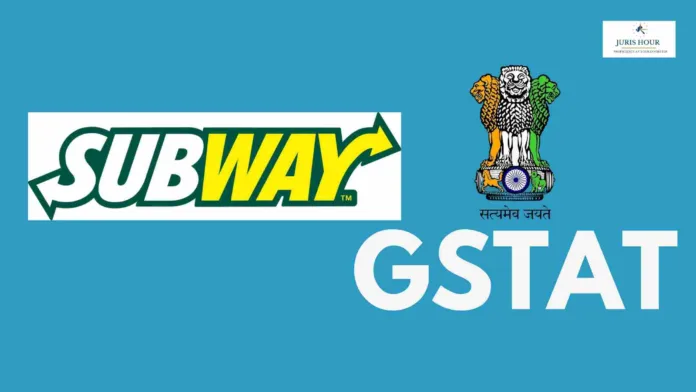The Delhi Bench of the Goods and Services Tax Appellate Tribunal (GSTAT) has upheld the findings of the Director General of Anti-Profiteering (DGAP) against Pune-based Urban Essence, a Subway franchisee, for profiteering Rs. 5.47 lakh by failing to pass on the benefit of a GST rate reduction on restaurant services from 18% to 5% effective November 15, 2017.
The bench of Justice (Retd.) Dr. Sanjaya Kumar Mishra (President) directed the franchisee to deposit Rs. 5,45,005, along with 18% interest from the date of collection, into the Consumer Welfare Funds of the Centre and the State of Maharashtra within three months. The Tribunal warned that failure to comply would result in recovery by the jurisdictional CGST/SGST Commissioner.
The anti-profiteering investigation originated from a complaint alleging that the franchisee did not reduce menu prices after the GST Council slashed the tax rate on restaurant services. Instead, the DGAP found that the outlet increased the base prices of its products, thereby negating the effect of the tax cut.
The investigation covered the period from November 15, 2017, to October 31, 2019, and examined 340 products. Sample analysis — including the pricing of a “12” Aloo Patty Sub — revealed that despite the lower GST rate, customers paid nearly the same or higher final prices due to increased base rates.
Urban Essence argued that price increases were due to higher operational costs, denial of input tax credit (ITC), and other market factors. It also claimed the complaint concerned only one product and objected to the DGAP expanding the probe to all menu items.
However, GSTAT rejected these arguments, citing that Section 171 of the CGST Act mandates passing on tax reductions through commensurate price cuts, and the scope of investigation covers all supplies of the registered entity, not just the complained product. The Tribunal noted that the franchisee failed to produce any invoices or documents to substantiate its claims, even after multiple opportunities, leading to an ex-parte decision.
Referring to the Delhi High Court’s 2024 judgment in Reckitt Benckiser Pvt. Ltd. v. Union of India, the Tribunal reiterated that while businesses may adjust prices for commercial reasons, they must justify such changes with evidence. In the absence of such proof, the statutory presumption that GST benefits must be passed to consumers remains intact.
The Tribunal emphasized that price increases “do not happen overnight” without valid cause and noted the lack of any credible evidence from Urban Essence to rebut the DGAP’s findings.
Although Section 171(3A) of the CGST Act allows penalties for profiteering, it came into effect on January 1, 2020, after the profiteering period in this case (July 2017–March 2019). As such, GSTAT ruled that no penalty could be imposed retrospectively.
The concerned CGST/SGST Commissioner must report compliance within four months. Failure to deposit the ordered amount will trigger recovery proceedings.
Case Details
Case Title: DGAP Versus URBAN ESSENCE (SUBWAY FRANCHISEE)
Case No.: NAPA/31/PB/2025
Date: 05.08.2025
Counsel For Petitioner: Suneel Kumar
Counsel For Respondent: None

